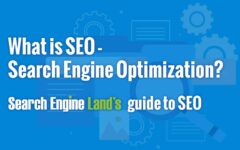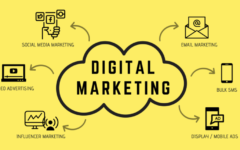Difference between SEO and SEM in Digital Marketing
July 23, 2024 2024-07-23 12:07Difference between SEO and SEM in Digital Marketing
The difference between SEO and SEM in Digital Marketing is that there are two essential tactics for improving online exposure and increasing website traffic: SEO (Search Engine Optimization) and SEM (Search Engine Marketing). Despite certain commonalities, they are different in their methods, approaches, and results. This blog explores the main distinctions between SEO and SEM to help you comprehend how to use either to accomplish your digital marketing objectives.
Difference between SEO and SEM in Digital Marketing
What is SEO?
The drilling of the intensity has to Search Engine Optimization/SEO. When a website gets optimized for the better of its artificially occurring search engine rankings as the process of SEO. SEO’s official reason is to take a website to show high-quality visitors to it from search engines such as Google, Bing, and Yahoo.
Components of SEO
- On-Page SEO: This involves optimizing individual web pages to rank higher and earn more relevant traffic. Key factors include keyword optimization, meta tags, content quality, internal linking, and user experience.
- Off-Page SEO: This focuses on activities outside the website to improve its ranking. The most significant aspect is building high-quality backlinks from reputable websites.
- Technical SEO: This involves optimizing the website’s backend structure and foundation. Key elements include site speed, mobile-friendliness, crawlability, and security (HTTPS).
- Content Creation: Producing high-quality, relevant content that addresses the needs and queries of your target audience is crucial for SEO success.
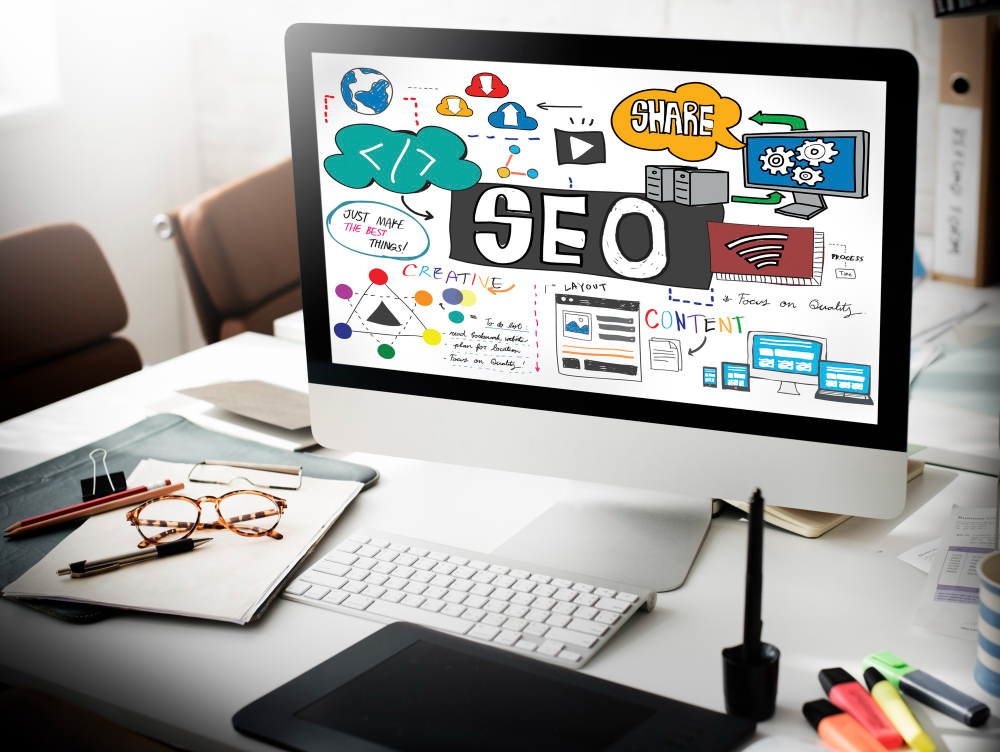
What is SEM?
Search Engine Marketing, literally means people use search engines not only for non-paid but also for paid search ads on the Internet. Anytime someone types a keyword into the browser and finds an ad as a result of which, there is a transaction. This fact proves that SEM is also one of the effective ways of attracting visitors to the site.
Components of SEM
- Paid Search Ads: These are the ads you see at the top and bottom of SERPs. Advertisers bid on keywords, and their ads appear when users search for those terms.
- Pay-Per-Click (PPC): A model where advertisers pay a fee each time their ad is clicked. It’s a way of buying visits to your site rather than earning them organically.
- Ad Campaigns and Targeting: SEM allows for precise targeting based on various factors like demographics, location, device, and user behavior, enabling advertisers to reach their ideal audience.
- Ad Copy and Creative: Crafting compelling ad copy and visuals is essential to attract clicks and drive conversions.
Why is SEO Important?
Search Engine Marketing, literally means people use search engines not only for non-paid but also for paid search ads on the Internet. Anytime someone types a keyword into the browser and finds an ad as a result of which, there is a transaction. This fact proves that SEM is also one of the effective ways of attracting visitors to the site.
- Increased Visibility and Traffic: Higher rankings on SERPs lead to increased visibility, driving more traffic to your website.
- Credibility and Trust: Users tend to trust websites that appear on the first page of search results. Achieving a top position can enhance your site’s credibility.
- Cost-Effective Marketing: Unlike paid advertising, SEO focuses on earning traffic organically. It requires an investment of time and resources but can be more cost-effective in the long run.
- User Experience: SEO involves optimizing your website for a better user experience, which can lead to higher engagement and conversion rates.
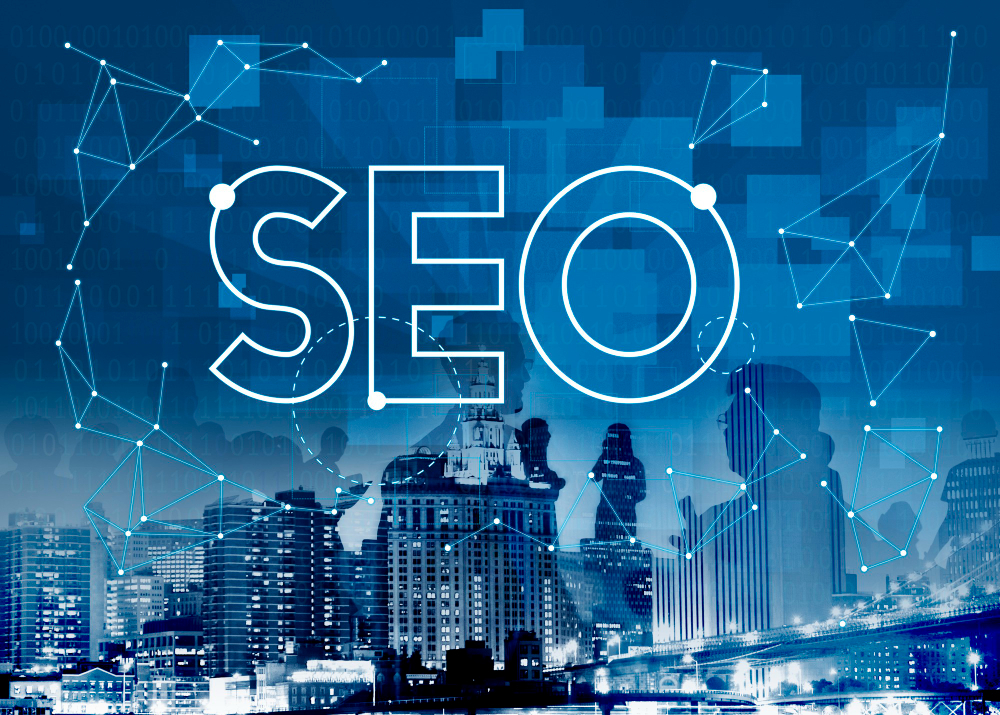
On-Page SEO
On-page SEO refers to the optimization of individual web pages to improve their search engine rankings and attract relevant traffic.
- Keyword Optimization: Identifying and incorporating relevant keywords and phrases that users are searching for.
- Meta Tags: Creating compelling and keyword-rich title tags, meta descriptions, and header tags.
- URL Structure: Creating clean and descriptive URLs that include relevant keywords.
Off-Page SEO
Off-page SEO involves activities outside of your website to improve its ranking. The most significant aspect of off-page SEO is link-building
- Backlinks: Acquiring high-quality backlinks from authoritative websites to signal trust and relevance to search engines.
- Social Signals: Increasing social media engagement and shares to boost your website’s visibility and credibility.
- Guest Blogging: Writing articles for other websites to gain backlinks and reach a wider audience.
Technical SEO
Technical SEO focuses on the backend of your website, ensuring that search engines can crawl and index your site effectively.
- Site Speed: Optimizing your website’s loading speed to provide a better user experience and improve rankings.
- Mobile-Friendliness: Ensuring that your website is responsive and performs well on mobile devices.
- Security: Implementing HTTPS to secure your website and protect user data.
Why is SEM Important?
Search Engine Marketing (SEM) is one of the most effective strategies for increasing visibility, driving traffic, and generating leads. This blog will explore why SEM is important for businesses of all sizes and industries, highlighting its key benefits and strategic advantages.
Components of SEM:
- Paid Search Ads: These are text-based ads that appear at the top or bottom of SERPs.
- Pay-Per-Click (PPC): A model where advertisers pay a fee each time their ad is clicked.
- Ad Campaigns and Targeting: SEM allows precise targeting based on keywords, demographics, location, device, and user behavior.
- Ad Copy and Creative: Crafting compelling ad copy and visuals to attract clicks and drive conversions.
key benefits and strategic advantages
- Immediate Visibility and Results: The capacity to attain instant visibility is among SEM’s most important benefits. Your advertisements may show up in search results as soon as your campaign goes live, bringing more people to your website. Any firm hoping to promote time-sensitive offerings or new ones trying to swiftly develop an online presence must take advantage of this immediate impact.
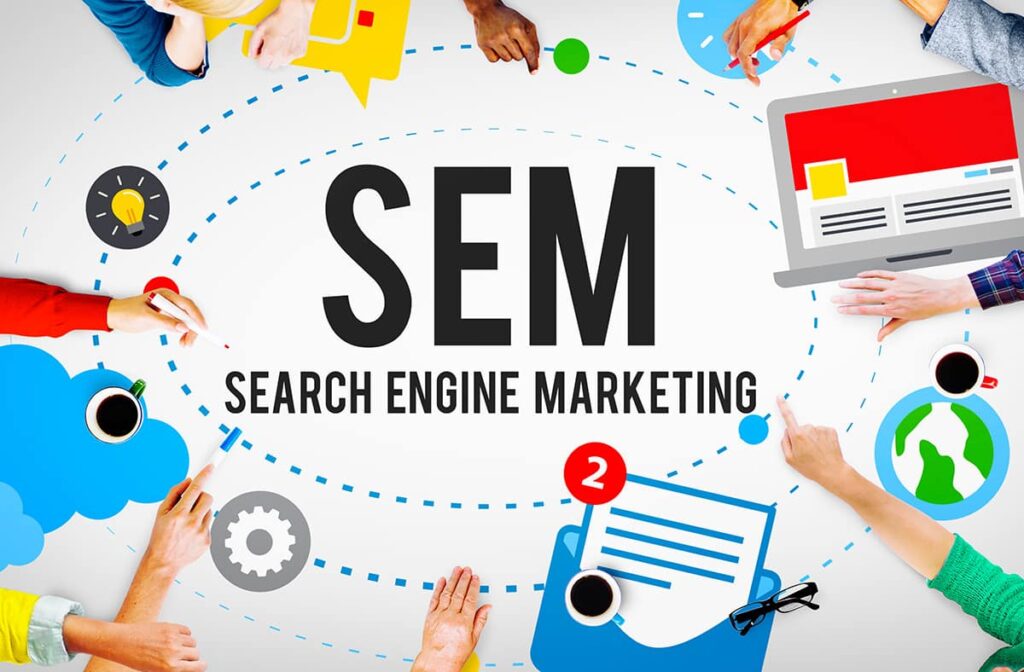
Targeted Advertising: Highly targeted advertising is possible with SEM. Ads can be customized to target particular devices, regions, demographics, and even times of day. This degree of accuracy makes sure that the most relevant audience sees your ads, which raises the possibility of clicks and conversions. Furthermore, by using keyword targeting, you can attract highly intended individuals who are actively looking for goods or services that are comparable to yours.
Cost-Effective Marketing: With SEM, you have complete control over your advertising budget. The PPC model ensures that you only pay when someone clicks on your ad, making it a cost-effective way to drive traffic. You can set daily or monthly budgets and adjust your spending based on the performance of your campaigns. This flexibility allows businesses of all sizes to participate in SEM, regardless of their budget constraints.


